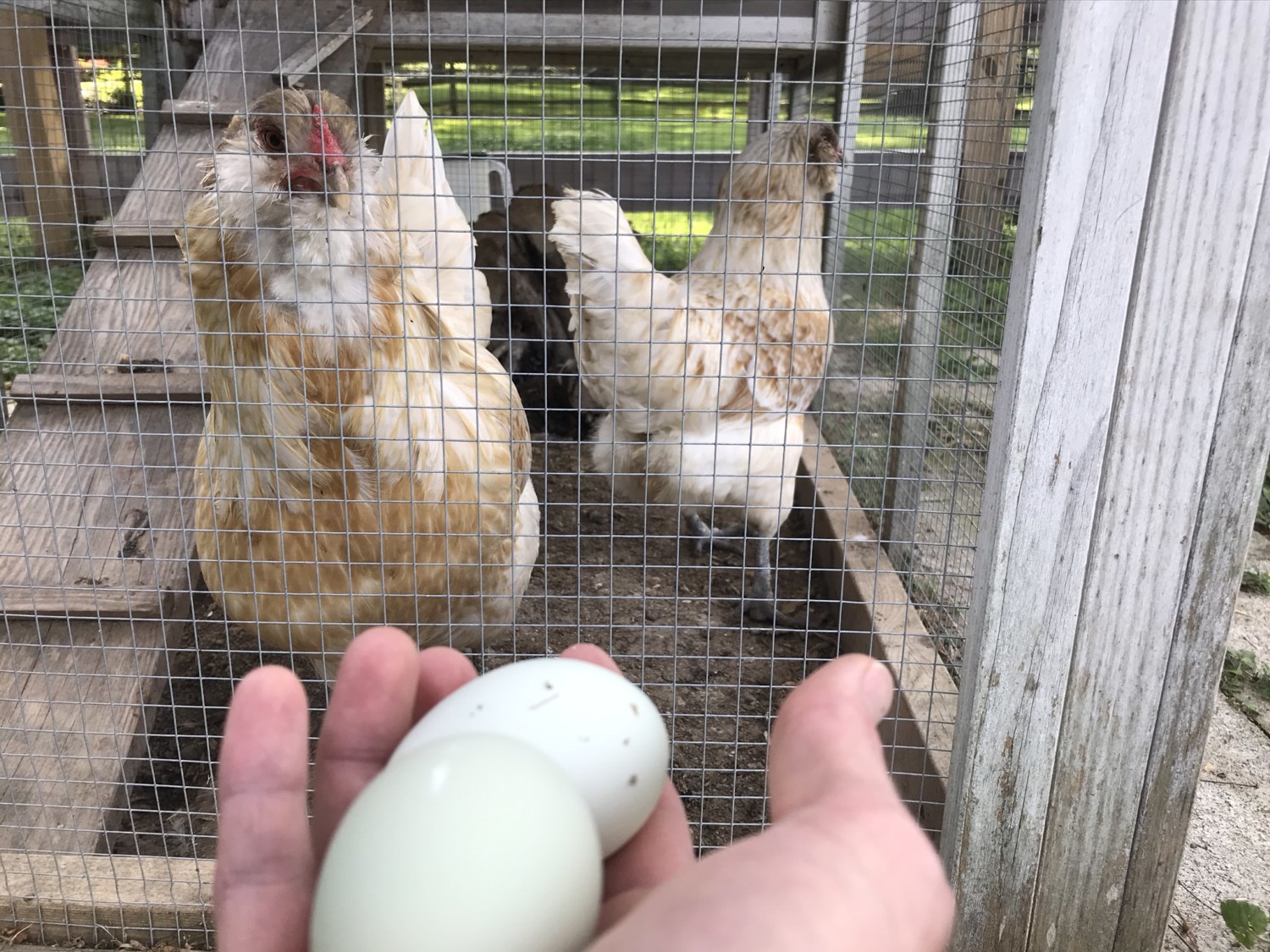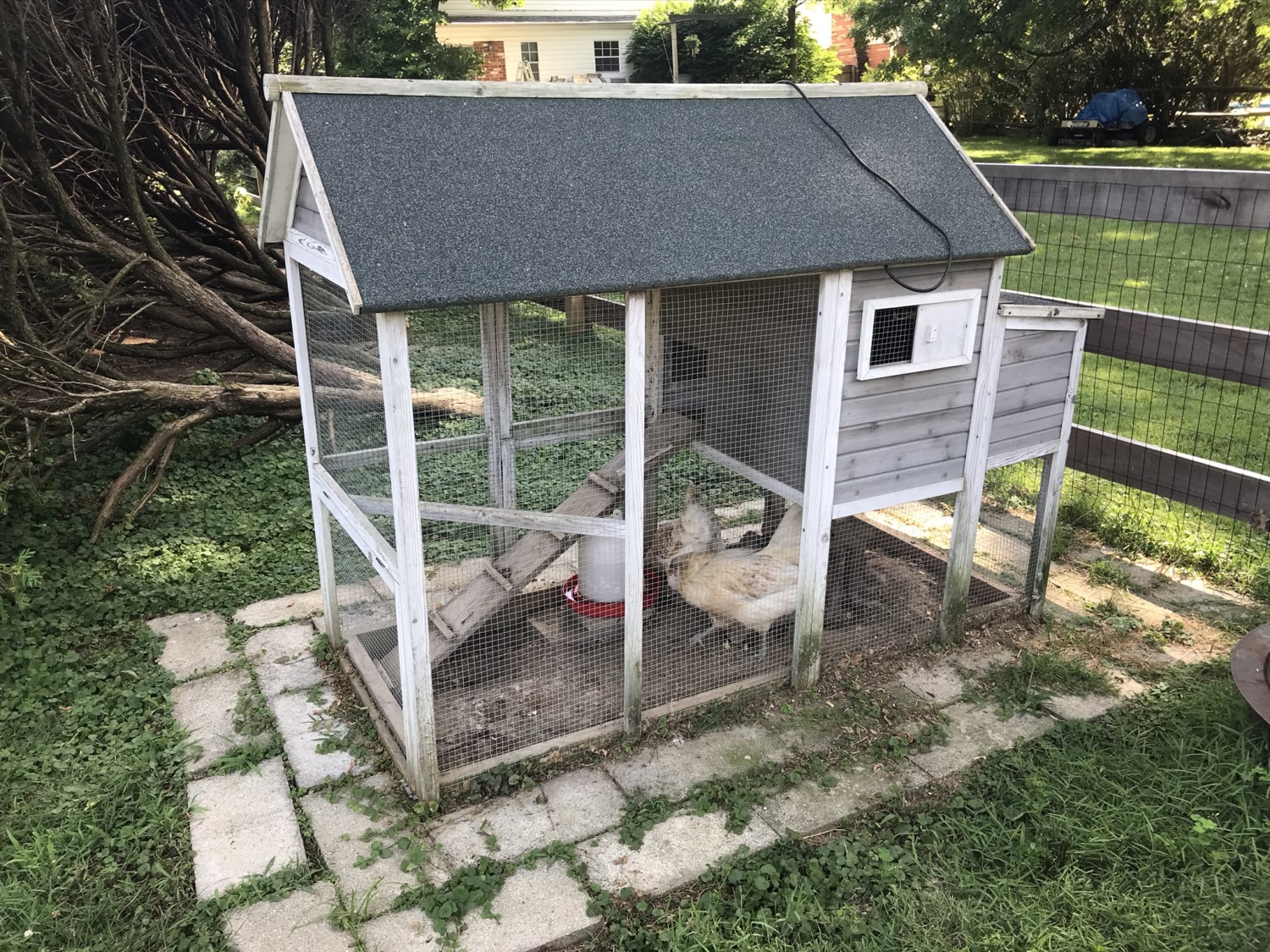The products and services mentioned below were selected independent of sales and advertising. However, Simplemost may receive a small commission from the purchase of any products or services through an affiliate link to the retailer's website.
When things begin to go bad, people buy chickens. Look no further than the current pandemic for the latest evidence of this phenomenon.
Hatcheries across the country reported record sales this year, especially during the initial lockdowns in the spring and summer, when people were most concerned about the food supply chain. According to the agriculture-focused Capital Press, the last time chicken sales boomed like this was during the bird flu outbreak of 2014.
But before you go out and buy some cute, fluffy chicks of your own, there are a few things you should know. Here’s my advice to any prospective poultry farmers as the owner of a modest coop myself.

Our adventure into chicken ownership started well before COVID-19 reared its ugly face.
My mother-in-law is a self-proclaimed “crazy chicken lady,” and it turns out the egg doesn’t roll far from the hen. When we decided to start a flock of our own at our house in Ohio, we were fortunate enough to inherit a coop that was gently used and a pair of chickens to live in it.
We’ve been enjoying two fresh eggs from our feathered friends every day ever since.

Do Your Research
Before we set up the coop and agreed to adopt a couple of spare poultry, we looked into the city ordinances to make sure it was even allowed.
Many local governments permit residents to have two to four hens on their property, while most ordinances specifically outlaw noisy roosters — ours included. The City Chicken has a handy list of laws and ordinances concerning chicken ownership in many major cities but you should look into those in your own area before making any other plans.
In our case, we also ran the idea past our neighbors to make sure they were on board. That is by no means a necessary step but we figured it was better to give them some friendly warning. Our promise of fresh eggs every now and again also probably didn’t hurt our chances of getting their blessing!
Get Your Supplies
As far as pets go, chickens are pretty low maintenance.
First and foremost, you’ll need a coop. Like I said, we were lucky enough to inherit a used one because new coops are a little pricey. Plan on spending at least $200-$300 on your coop at the low end but you can easily find ones that sell for more than $1,000 online that are extra roomy.
If you have the time, skill and inclination, you can also find many free plans online for building one yourself.

The coop is essential, not just as a living space for your chickens, but as protection for them. Predators like foxes, hawks, coyotes, skunks and others won’t hesitate to make a meal of your newly acquired chickens if they aren’t shielded.
Plus, chickens need a place to roost at night and the coop provides a safe place for them to lay their eggs.
Just like with any other pet, you’ll also need a water dish and a food bowl for your chickens. If you live in a cold-climate area where any water you leave outside may freeze, a heated dog bowl can save you a lot of headache.
All these supplies, including the coop and the feed you’ll also need, can all be found at your local farm store, like Tractor Supply Co. or Rural King. You can also often buy chickens directly from those stores.
Choose Your Flock
Just like dogs, there are a lot of varieties of chickens. Some chickens are raised specifically for meat while others are kept for their exceptional egg-laying abilities.
Whether you’re purchasing your fuzzy little chicks directly from a hatchery or you’re finding your flock at a local farm store, it’s important to do your research and ask the right questions.
Find out if the birds are egg-layers or meat birds, and ask how big they’ll get.
For example, you won’t want to purchase a larger Rhode Island red when you imagined you’d raise a smaller bantam chicken.
Once the research is done, the supplies are purchased and you’ve found the perfect birds, you can expect your newest pets to start laying eggs and providing you fresh eggs in a few short months.
This story originally appeared on Simplemost. Checkout Simplemost for additional stories.


